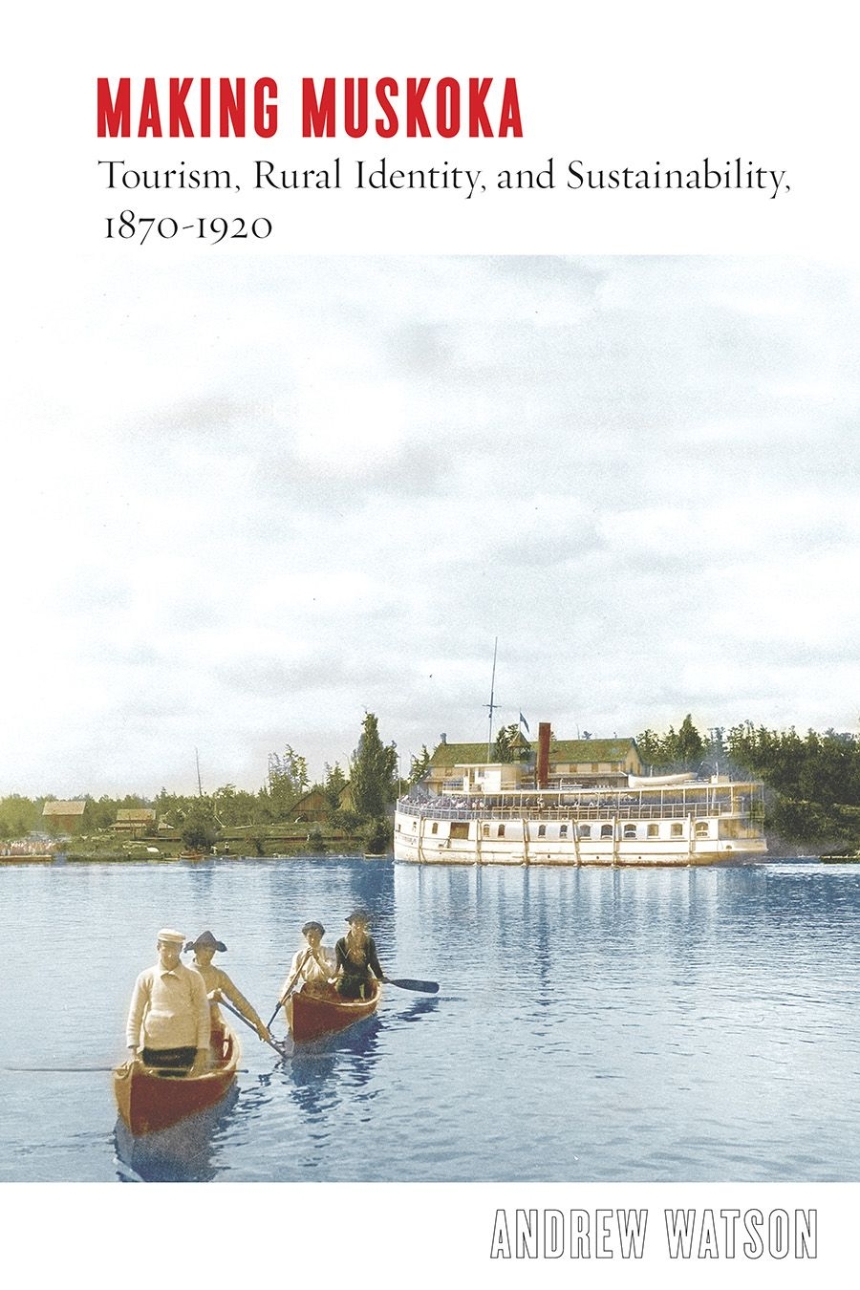University of British Columbia Press
Making Muskoka
Tourism, Rural Identity, and Sustainability, 1870–1920
Distributed for University of British Columbia Press
Making Muskoka
Tourism, Rural Identity, and Sustainability, 1870–1920
Uncovers the transformation of Muskoka from an Indigenous, rural homeland to a playground for tourists and cottagers.
At the turn of the twentieth century, Muskoka underwent a profound transition. Over this period, settler colonialism upended Anishinaabe and Haudenosaunee communities. However, settlers discovered that the land was unsuited for farming, and soon thereafter tourism became a fact of life. Andrew Watson examines rural identity, tensions between large- and household-scale logging operations, and the dramatic effects of consumer culture and a shift toward fossil fuels on settlers’ ability to control tourism.
Tracing the region’s evolution from 1870 to 1920, Making Muskoka uncovers the lived experiences of rural communities shaped by tourists at a time when sustainable opportunities for a sedentary life were few on the Canadian Shield, revealing the consequences for those living there year-round.
242 pages | 42 color plates, 1 figure, 9 maps | 6 x 9 | © 2022
History: Environmental History
Travel and Tourism: Tourism and History

